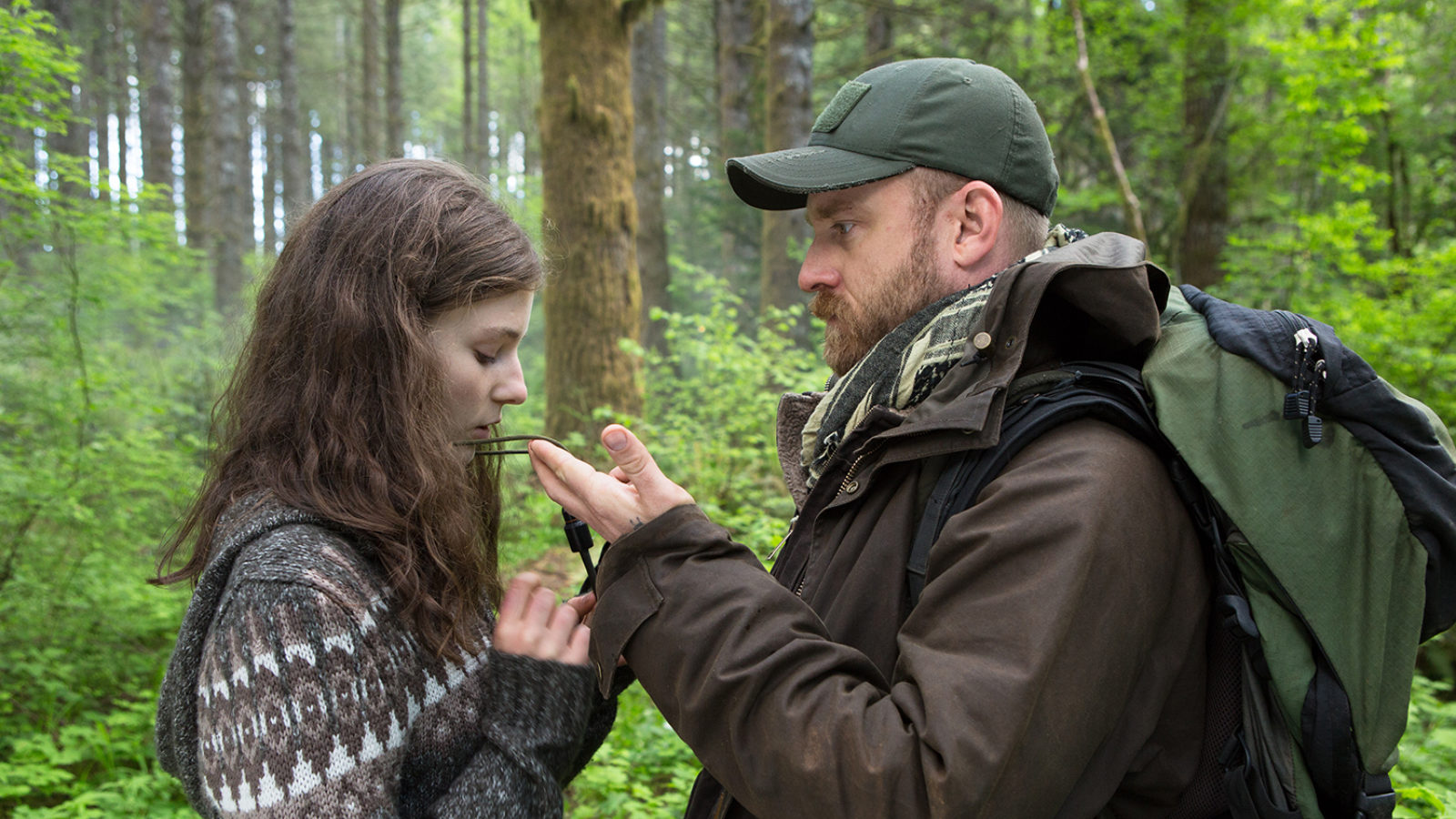By Nick Davis in the July-August 2018 Issue

Short Take: Leave No Trace
(Debra Granik, USA, Bleecker Street Pictures, Opened June 29)
Redolent with regional ambience, Leave No Trace is coolly directed even when springing sudden surprises. In Debra Granik’s third fiction feature, a youngish father (the ever-impressive Ben Foster) and watchful teenage daughter (Thomasin Harcourt McKenzie) have no home but the kelly-green forests of the Pacific Northwest. Neither ostentatious survivalists nor dewy nostalgists, they crave anonymity amid their ocean of wood and peat, manifesting on highway shoulders and in supermarket aisles only as basic needs require. Then, their routine is shattered. Then, they reclaim it—perhaps. Then it changes again. Meanwhile “they” atomizes into he and she, mutually devoted yet divergent in motives. The audience roots, paradoxically, for rapprochement and separation.

From the July-August 2018 Issue
Also in this issue
It’s hard not to compare Leave No Trace to Granik’s career-making Sundance champion, Winter’s Bone (2010). Some viewers will appreciate the new movie’s equanimous gaze on off-the-grid communities—a warmth missing from its predecessor’s fanged and flinty Ozarks. Others may lament how Granik’s boldest impulses with lensing, sound, and montage have subsided over eight intervening years. But if you’re torn about reading Leave No Trace as an expansion upon or apologia for Winter’s Bone, versus letting the current work speak for itself, you’re already on the right thematic frequency for this potent, poignant two-hander. To what extent and at what cost, the film asks, does the old suffocate the new? What is gained and lost by demanding autonomy, even from that which is deeply known and dearly loved?
Nick Davis is a professor of film, literature, and gender studies at Northwestern University and a contributing editor to Film Comment. He also writes film reviews at www.Nick-Davis.com.





